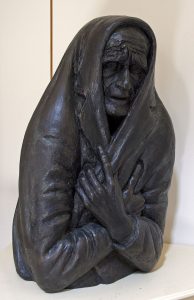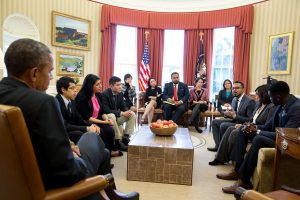A Trifecta of Illegitimacy
 Let’s review a few basics about the Rule of Law in the United States of America. First of all, the Executive Branch (in the form of the President) is given the power to enforce federal law by our United States Constitution. In contrast, the Legislative Branch (in the form of the Congress) is given the power to make the law. So, for example, if the Legislative Branch has passed a statute that grants all refugees seeking political asylum the absolute right to file such a claim when they reach our nation’s borders (which it has, in the Refugee Act of 1980), then the President cannot simply declare that right to be “suspended” and instruct officers with the Customs and Border Protection office to turn such refugees away when they arrive at U.S. airports or other ports of entry.
Let’s review a few basics about the Rule of Law in the United States of America. First of all, the Executive Branch (in the form of the President) is given the power to enforce federal law by our United States Constitution. In contrast, the Legislative Branch (in the form of the Congress) is given the power to make the law. So, for example, if the Legislative Branch has passed a statute that grants all refugees seeking political asylum the absolute right to file such a claim when they reach our nation’s borders (which it has, in the Refugee Act of 1980), then the President cannot simply declare that right to be “suspended” and instruct officers with the Customs and Border Protection office to turn such refugees away when they arrive at U.S. airports or other ports of entry.
As a side note, none of the Executive Orders or Presidential Directives issued by President Obama relating to the enforcement of the immigration laws directly contravened explicit language contained in a statute passed by Congress. The legal debate over the unilateral actions taken by President Obama concerned the scope of the President’s discretion to choose how to enforce the law and how to prioritize deportations. They did not concern whether the President had the authority to order government officials to ignore explicit commands contained in the law. The Order by President Trump to “suspend” the entry of refugees from specified countries without complying with the provisions required under the Refugee Act of 1980 is in direct conflict with an Act of Congress.
Second, the United States has signed treaties that obligate us to treat persons who are “refugees” in certain ways.

